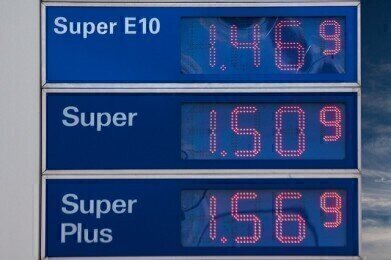Safety
Does the UK Need a Petrol Price Watchdog?
Mar 04 2019
With the average per litre price for fuel now sitting at around £1.20 for petrol and £1.29 for diesel, a group of concerned MPs is calling for the introduction of an independent consumer watchdog that will actively monitor fuel costs and ensure the best interests of drivers are prioritised.
Known as Pumpwatch, the watchdog will issue all stations that advertise fair prices with a "kitemark" logo that empowers drivers with the knowledge to pick and choose their petrol retailers. The concept is being spearheaded by the All-Party Parliamentary Group (APPG) for Fair Fuel, which has slammed the industry for blatantly increasing its profit margins at the expense of British drivers.
Petrol retailers rake in profits
According to APPG MPs, petrol retailers banked around 8p per litre in the first nine months of 2018, though were enjoying margins of 13p per litre by the end of the year. Diesel drivers have also taken a hit, with profit margins rising from 8.6p per litre to 11p per litre.
Kirstene Hair, APPG chair asserts that the pricing system simply isn't fair and that drivers need to be offered more clarity when purchasing fuel. Not only will the watchdog support urban motorists, but it will also offer valuable insight to rural drivers who are heavily reliant on personal vehicles and therefore fuel prices.
"Drivers need reassurance that they are not paying way over the odds for fuel," she says. "In rural communities where public transport is poor and unreliable, people need their vehicles to get from A to B. It is essential that they pay the fairest price. That is where a price monitoring system would support them."
RAC accuses retailers of hustling "greater margins"
The calls for a consumer watchdog come in the wake of claims that while British pump prices have fallen over the last six months, prices paid by consumers fail to reflect the wholesale savings enjoyed by retailers. The RAC agrees, with spokesman Simon Williams saying, "Retailers have been taking greater margins than they would normally do, and that's caused prices to be higher than they should be."
The fuel industry has been quick to reject plans for a price watchdog, claiming that while the concept is well-meaning, executing and monitoring prices would be difficult. "Who is going to check prices at 8,500 forecourts?" asks says Brian Madderson, chairman of the Petrol Retailers Association. "And if you have a kitemark, what's going to be the acceptable margin?" He also claims that higher pricing is often necessary to keep low-volume petrol stations in rural areas afloat, and that "If people don't like high prices, they can go to a cheaper forecourt."
With fuel prices increasing and calls to ban sales of new petrol and diesel cars by 2040, electric vehicles are quickly gaining momentum. While lithium-ion is a popular candidate for use in EVs, 'Risks and side effects: The underestimated dangers of lithium-ion batteries' explores the benefits of nickel metal hydride batteries.
Digital Edition
PIN 25.1 Feb/March
March 2024
In This Edition Safety - The technology behind the ION Science Tiger XT - Safety with ammonia and LOHCs as hydrogen carriers Analytical Instrumentation - Discussion on new tribology te...
View all digital editions
Events
Apr 28 2024 Montreal, Quebec, Canada
Apr 30 2024 Birmingham, UK
May 03 2024 Seoul, South Korea
May 05 2024 Seville, Spain
May 06 2024 Riyadh, Saudi Arabia


.jpg)















